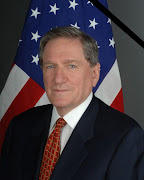Reply to the article with the same title HERE
What I would like to state since the very beginning is that nothing is given once forever. Things change continuously aiming to improve and never should be considered static. Under such lights the International Law and the way it should be interpreted is in dynamic change (improvement).
I’m not surprised the author has a different (contrary) opinion and fear the dynamic of the change but one day these changes would take place inevitably.
Kosovo case is the most studied and the clearest way to start. By the end the International Law should serve to the Justice and support humanity. Kosovo case is a very clear case but before the author gives its opinion starting from other cases (he think are similar), he should know in depth the Kosovo case. First he should be able to list both similarities and differences. Doing that he would be more convincible giving a clearer “Studied and Independent Opinion”.
Western countries have been very involved in this case and have followed it step by step having a deep knowledge about it. As a European issue and as a part of their geospace they are very interested to establish the peace in the region. Furthermore they are present in Kosovo since the beginning and are contributing to improve furthermore the European standards in order to prepare it in EU integration process.
Under such light the Independence of Kosovo is in fact a step before the integration under the same structure where Serbia has applied to be a part.
It’s true that Kosovo case would set a precedent! Maybe the International Law would change by supporting the independence of countries, regions and nations in risk by the application of genocide and deprivation of Elementary Human Rights! That is called Law to serve to the Justice and here everyone agrees. With these changes, countries who apply Genocide and violation of Human Rights would think more seriously as it will put in discussion the integrity of their country. However, even here the Kosovo issue is different because it had earlier a substantial autonomy recognized by the Constitution of Yugoslav Federation and removed unlawfully by Milosevic's regime.
Russian state tried to prove that the Kosovo Independence would set a precedent in International Law by generating a conflict in Georgia. As everybody knows it was a total failure because those so called states have got only 4 recognitions (one of them Russian one) while Kosovo has got 69 official recognition. The Russian experiment showed in the clearest way that Western Countries where right considering Kosovo as a sui generic case, s.th. couldn’t apply in other cases and differ to them even in rapport with International Law.
Having the confidence that the western countries knows better and are actors in this case I’m confident that they have much more chances to support the Kosovo independence than their opponents. I believe that the ICJ opinion, if it will not be pro, at least would not be against Kosovo Independence.



 and
and 





